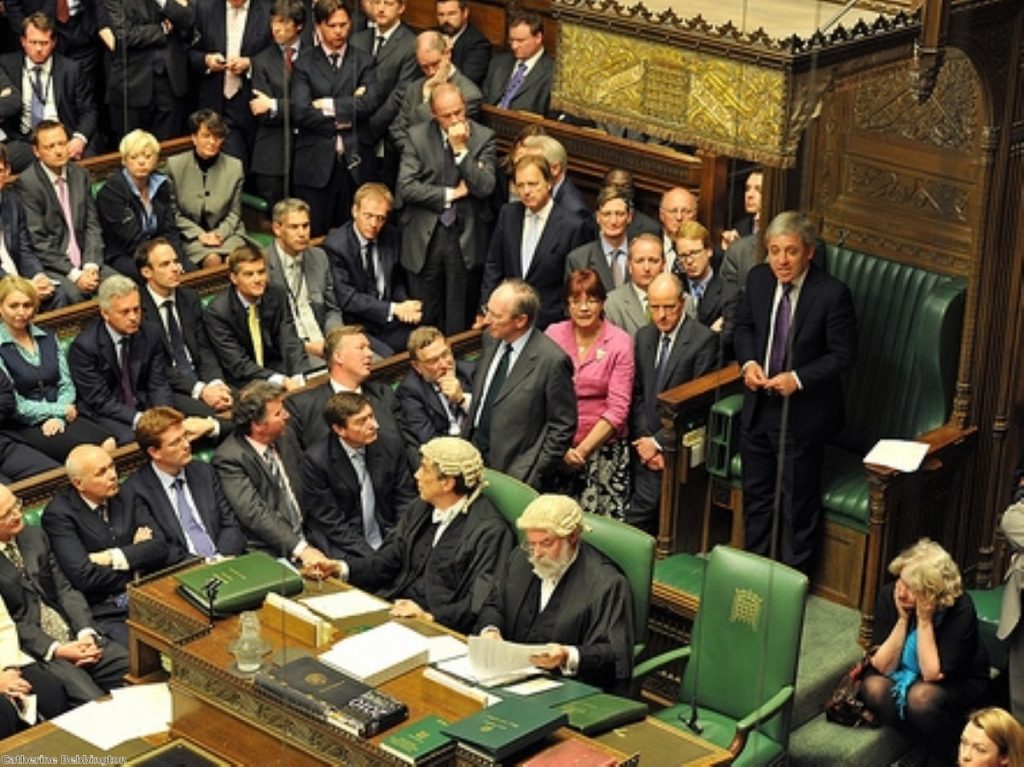Phone hacking: Speaker announces Commons debate
By Ian Dunt
Downing Street’s hopes of the phone hacking row being put to bed have crumbled to dust after the Speaker announced a Commons debate on the issue.
The decision will have been all the more painful for the government, after it came hot on the heels of a tough defence of Andy Coulson from deputy prime minister Nick Clegg at PMQs.
Mr Clegg stepped in after the prime minister rushed to France to be by the bedside of his father, who has had a stroke.


Cameron rushes to ill father’s bedside
John Bercow rose after PMQs to tell the House that he had received a letter from the “member for Rhonda” – Labour MP Chris Bryant – and that he agreed it was a matter the House should discuss. The debate will take place tomorrow lunchtime.
Mr Clegg had just offered a solid defence of Mr Coulson’s employment as director of communications in Downing Street.
Jack Straw asked him if he believed Mr Coulson knew nothing of the practise of phone hacking when he was editor of News of the World. The Guardian and the New York Times claimed the practise was widespread and actively encouraged by Mr Coulson.
Mr Clegg replied that Mr Coulson had been quite clear that he was not aware of the practise being widespread. He shielded himself from Mr Straw’s line of attack by repeatedly referring to the issue being a matter for the police.
“Does he want all of us to start second guessing from what’s in the newspaper?” he told the shadow justice secretary.
“I would have thought after all the years you were involved in our criminal justice system, you would know better.”
The row over the hacked phones is now entering its second week and Downing Street officials are becoming increasingly disarmed by the fact it has not died down.
In Westminster, rumours that Mr Coulson will have to resign over the allegations have been gaining currency.
Mr Cameron was aware that Mr Coulson had stepped down as editor of News of the World three years ago when royal correspondent Clive Goodman and a private detective were jailed for hacking into phone messages of the royal family. At the time, the practise was put down to one bad apple.
When the matter was raised with him, Mr Cameron repeatedly insisted that people should be given “a second chance”, but last year’s Guardian report into the activity – largely corroborated by the New York Times investigation – suggested the practise was widespread at the newspaper and actively encouraged by Mr Coulson.
The row has become increasingly party political since parliament returned from the summer break on Monday.
An urgent question tabled for the home secretary saw Theresa May refuse to overrule a police operation in the matter and accuse the Labour benches of being motivated by party political allegiance rather than concern for the law.
But senior figures in the Labour party refused to let the matter go. They were galvanised by a statement in which Mr Bryant, a former Foreign Office minister, told MPs had had reason to believe his phone had been hacked into but the police had given him no information.
Labour MP Tom Watson read out a list of deficiencies in the original police investigation.
Shadow home secretary Alan Johnson said that if Gordon Brown was right to sack Damian McBride over the smear emails, then Mr Cameron should sack Mr Coulson over phone hacking.
Yesterday, the home affairs committee added fuel to the fire by announcing an investigation on phone hacking and tapping – both in terms of the law itself and how police conduct themselves during investigations concerning it.









